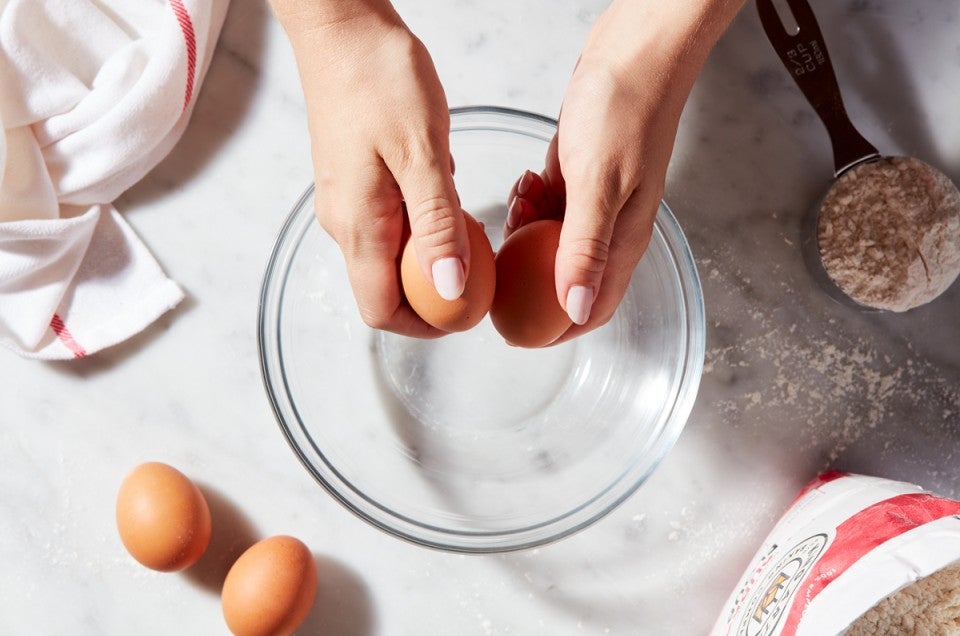Things bakers know: A better way to crack eggs
You probably don’t think about your egg-cracking method, but you should.


Drop your whisks: There's a better way to crack eggs, and I’ve just learned it from the bakers at Seattle's The Pastry Project.
It makes sense that The Pastry Project would be sharing their baking wisdom — education and teaching are their whole mission, after all. They’re a social enterprise that provides free baking and pastry training to individuals with barriers to education and employment in the industry to make pastry careers more accessible. It’s why we’re such big fans of them at King Arthur, having partnered with them through our For Goodness Bakes program starting back in 2021.
But beyond having an inspiring mission and powerful values, the Pastry Project team are also just really great bakers who spend a lot of time in the kitchen. Which is how I learned this little nugget of wisdom from co-founder Emily Kim: “When cracking many eggs, we'll take an egg in each hand and hit them against each other to crack them.”
Wait, what? Why?
“It's gentler on the shell and creates fewer fragments,” explained Emily.

I happened to hear this tip during an astonishing run of bad luck while cracking eggs. Seriously, I’ve never had so many shells accidentally end up in my mixing bowl in my life. Since then, I’ve started using The Pastry Project’s tip anytime I'm cracking multiple eggs, and — coincidence or not — there have been a lot fewer shells in my baked goods. So what’s the difference-maker? A fellow egg is not as hard a surface as a countertop or bowl rim; as a result, it seems to prevent the egg that's being cracked from smashing with too much force and creating little bits of shell that can easily wind up in your batter.
And even if, somehow, shells still manage to make their way into the egg you’re using, the bakers have one additional trick up their sleeve. Explains Emily, “We crack eggs into a clear container and lift it up to examine for any shell fragments before adding them to a dough or batter.” If you catch some accidental bits of shell, just pick them out before adding your egg to the recipe.

No stray shells in your muffins, and a cleaner cracking experience overall. It turns out The Pastry Project is changing the baking world in ways both big and small.
Before cracking those eggs, you may be wondering: Do eggs used in baking really need to be at room temperature? In this previous blog, we break down the baking examples in which the answer is yes, no, and maybe.
Cover photo by Rick Holbrook; food styling by Kaitlin Wayne.

